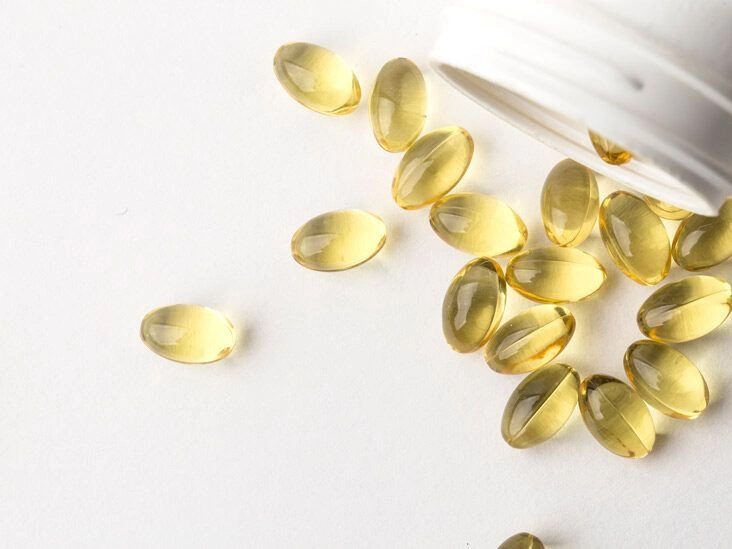Fish oil is a rich supply of omega-3 fatty acids, which support both cardiovascular and brain health. Still, obtaining omega-3s from whole fish is generally preferable. For those who rarely eat fish, fish oil supplements offer a practical alternative.

Fish oil is among the most widely used nutritional supplements.
It provides concentrated omega-3 fatty acids, which are essential for overall health.
If you do not consume much oily fish, a fish oil supplement can help you meet your omega-3 needs.
Below are 12 health advantages linked to fish oil.
Nutritional information
Fish oil is derived from oily fish such as herring, tuna, anchovies, and mackerel. It supplies omega-3 fatty acids, which offer numerous health benefits.
Approximately of fish oil consists of omega-3s, in addition to vitamins A and D. Fish-derived omega-3s typically confer greater health advantages than plant-based sources.
The principal omega-3s in fish oil are eicosapentaenoic acid (EPA) and docosahexaenoic acid (DHA); plant sources mainly provide alpha-linolenic acid (ALA).
Ensuring sufficient omega-3 intake is important because the typical Western diet tends to favor other fats over them, which can contribute to health problems.
If you’re unable to eat enough fish, supplements are a useful option.
What are the major benefits of fish oil?
Research indicates that populations who consume large amounts of fish have far lower rates of heart disease.
Eating fish or taking fish oil appears to improve several risk factors for heart disease. These benefits include helping to:
- reduce cholesterol
- lower triglycerides
- decrease blood pressure
- prevent the buildup of plaques that harden arteries
There is evidence that omega-3s may lessen the severity of heart disease and reduce mortality. Studies are ongoing to clarify whether omega-3 intake is connected to stroke prevention or lower stroke-related mortality.
If you measure the brain’s mass excluding fluid, a significant portion consists of polyunsaturated fatty acids, including omega-3s, making them vital for normal brain function.
Indeed, research suggests that individuals with certain mental health disorders often have lower blood levels of omega-3s, and higher omega-3 status may help prevent or alleviate symptoms of some psychiatric conditions.
Evidence indicates that inadequate omega-3 intake is linked to a greater risk of eye disorders, with the notable exception of dry eye disease.
Moreover, eye function tends to decline with age, contributing to age-related macular degeneration (AMD). Consuming fish is associated with a lower risk of AMD, though results from fish oil supplements have been mixed.
Because fish oil has anti-inflammatory effects, it may help manage chronic inflammatory conditions. For instance, excess body weight or stress can elevate inflammation levels.
However, the role of omega-3s in inflammatory bowel disease (IBD) remains uncertain.
That being said, fish oil supplements have been shown to ease joint pain, stiffness, and reduce medication needs in people with rheumatoid arthritis, a condition marked by joint inflammation.
Your skin is the body’s largest organ and requires substantial amounts of omega-3 fatty acids.

Fish oil supplements can be beneficial for several skin issues, including psoriasis and dermatitis.
Omega-3s are crucial for early development, especially during the first trimester of pregnancy, and continue to play a role afterward.
Taking fish oil while pregnant or breastfeeding may support the child’s cognitive development, although further studies are needed to confirm this definitively.
Additionally, fish oil supplementation during pregnancy and lactation may aid infant visual development and lower the risk of allergies.
Your liver metabolizes most bodily fats and can influence weight regulation.
Fish oil supplements can improve liver function and reduce inflammation, which may ease symptoms of nonalcoholic fatty liver disease (NAFLD) and decrease liver fat content.
Several neurodevelopmental disorders in children, such as attention deficit hyperactivity disorder (ADHD), involve hyperactivity and attention difficulties.
Fish oil supplementation may improve symptoms like hyperactivity, inattention, impulsiveness, and aggression in children. This could support early learning, but more research is required.
People who consume more fish tend to experience a slower decline in cognitive function as they age.
A 2023 meta-analysis of 48 studies found that omega-3 supplements may reduce the risk of dementia and age-related cognitive decline by up to 20%.
Asthma, which causes airway inflammation and breathing difficulties, is increasing in prevalence.
Some research suggests omega-3s might reduce asthma-related inflammation, lessen symptom severity, and decrease reliance on asthma medications, although additional studies are necessary to confirm these effects.
Calcium and vitamin D are key for bone health, particularly in older adults, but some evidence points to omega-3 fatty acids also benefiting bone strength.
Individuals with higher omega-3 intake and blood levels tend to have better bone mineral density (BMD).
Still, it remains unclear whether fish oil supplements consistently improve BMD; any benefit may depend on the type and manufacturing of the fish oil product.
How to supplement
If you don’t eat one to two servings of oily fish per week, you might want to consider taking a fish oil supplement.
Here are some factors to keep in mind when choosing a fish oil supplement:
- Dosage: Dietary guidelines recommend at least 8 ounces (oz) of seafood weekly for a 2,000-calorie diet. Pregnant or breastfeeding individuals may be advised to consume up to 12 oz.
- Form: Fish oil supplements are available in various forms, including ethyl esters, triglycerides, re-esterified triglycerides, free fatty acids, and phospholipids. Your body can absorb ethyl esters as well as other types.
- Concentration: Check the label and pick a supplement that delivers at least 500 milligrams (mg) of combined EPA and DHA per 1,000 mg of fish oil.
- Purity: To ensure the product contains the ingredients listed, select a supplement that is third-party tested or bears a purity seal from the Global Organization for EPA and DHA Omega-3s (GOED).
- Freshness: Omega-3s are prone to oxidation and rancidity. Choose a supplement that includes an antioxidant like vitamin E, and avoid products with a rancid odor or that are past their expiration date.
Frequently asked questions about fish oil
Is it good to take fish oil every day?
According to the National Institutes of Health, the recommended daily intake (RDI) for total omega-3s is .
Who should not take fish oil?
Avoid fish oil supplements if you have a seafood allergy or without consulting your healthcare provider. Speak with your doctor before taking fish oil if you use medications such as blood thinners or hormonal treatments like birth control, or if you have chronic medical conditions.
Does fish oil increase testosterone?
A study found that DHA-enriched fish oil supplements raised testosterone levels in overweight and obese men. Still, further research is necessary to confirm these results.
The bottom line
Omega-3s support normal brain and eye development, combat inflammation, and may help prevent heart disease and cognitive decline.
Because fish oil is high in omega-3s, those at risk for these conditions may benefit from it.
However, whole foods are usually preferable to supplements, and eating two servings of oily fish per week generally provides sufficient omega-3s. If you want more detail on recommended intake and product choices, see our guidance on fish oil dosage.
In fact, consuming fish is often as effective—or more so—than taking fish oil for preventing many illnesses; for more on the benefits of eating fish and cod-derived oils, read 9 benefits of cod liver oil and a broader review of 17 health benefits of omega 3.
Nonetheless, fish oil supplements are a suitable option for people who do not eat fish.


















Leave a Reply
You must be logged in to post a comment.